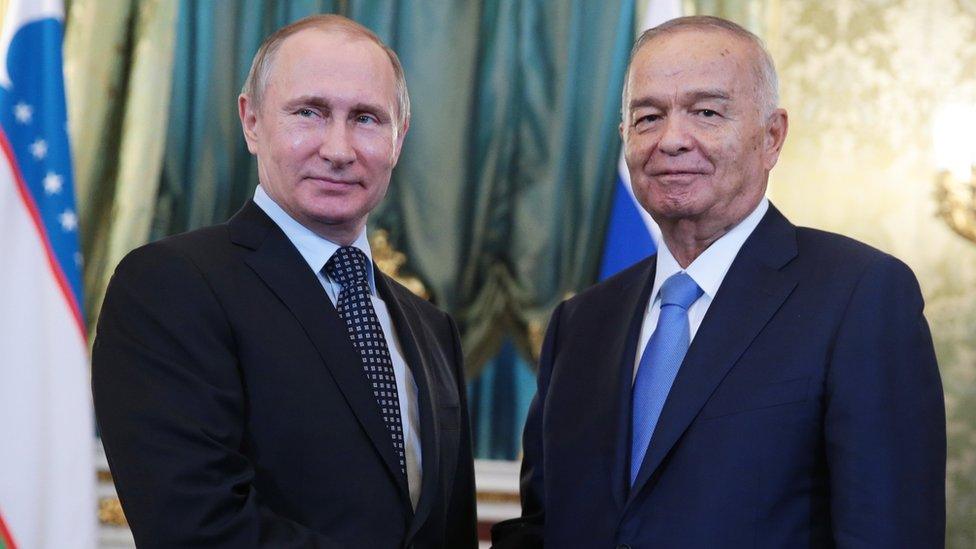Regional media bid farewell to Uzbek leader
- Published
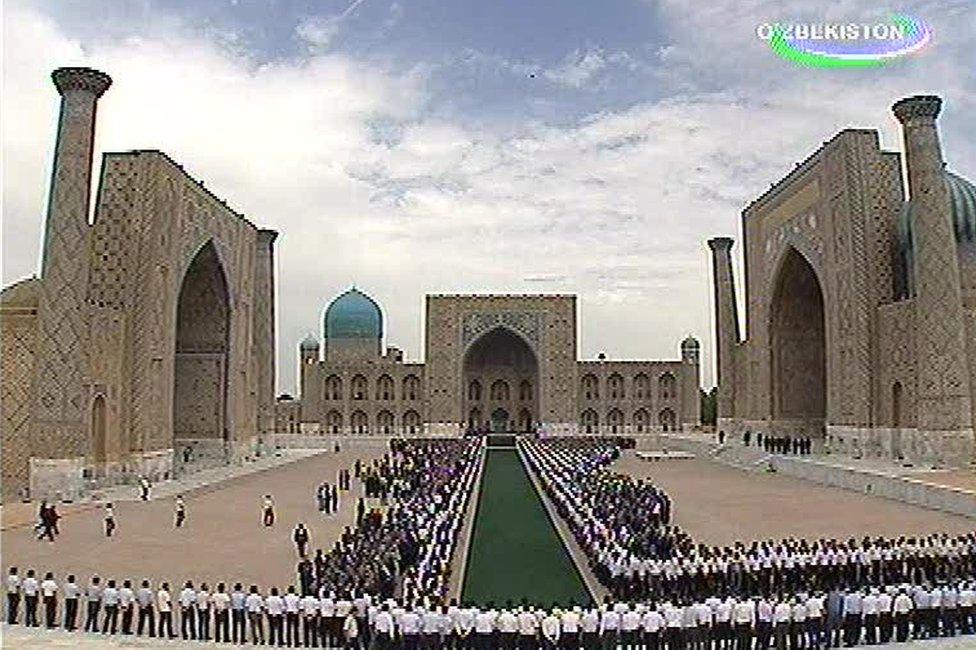
Uzbek state TV screened the funeral, which was held in Registan square in the historic city of Samarkand
The death of Uzbek President Islam Karimov is big news in the region, where some commentators in neighbouring countries are hoping for better inter-state relations.
And in Russia - once the core of the Soviet Union which included Uzbekistan - some commentators predict the possibility of instability following the demise of the "typical despot".
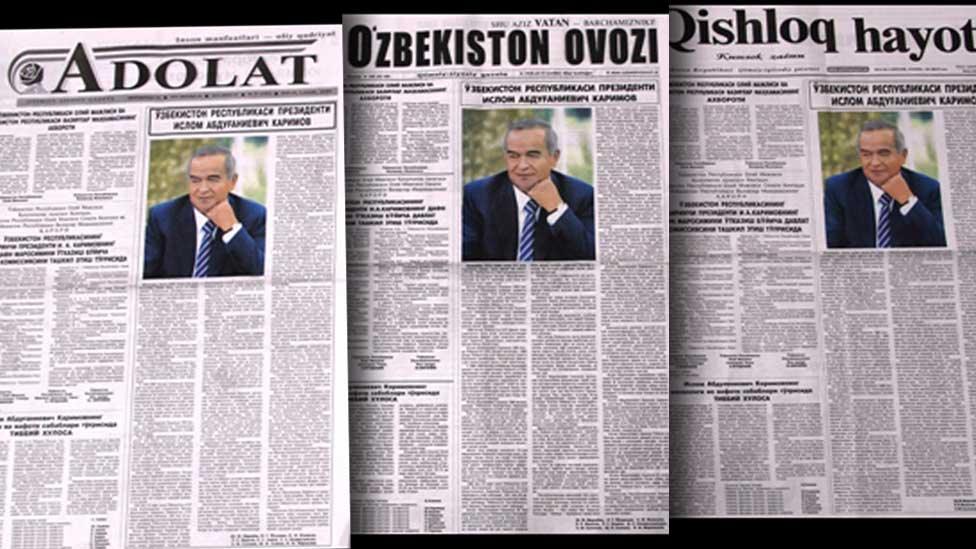
Uzbek newspapers featured strikingly similar covers after Mr Karimov's death
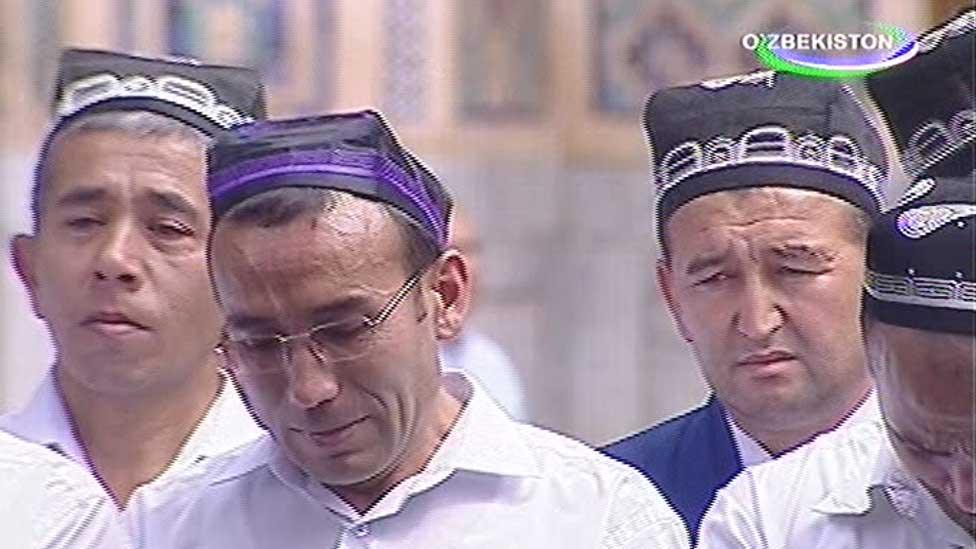
Uzbek TV showed mourners at the funeral
Predictably, tightly controlled Uzbek media have been giving blanket coverage to President Karimov's death, with the main national newspapers changing their front-page mastheads to black.
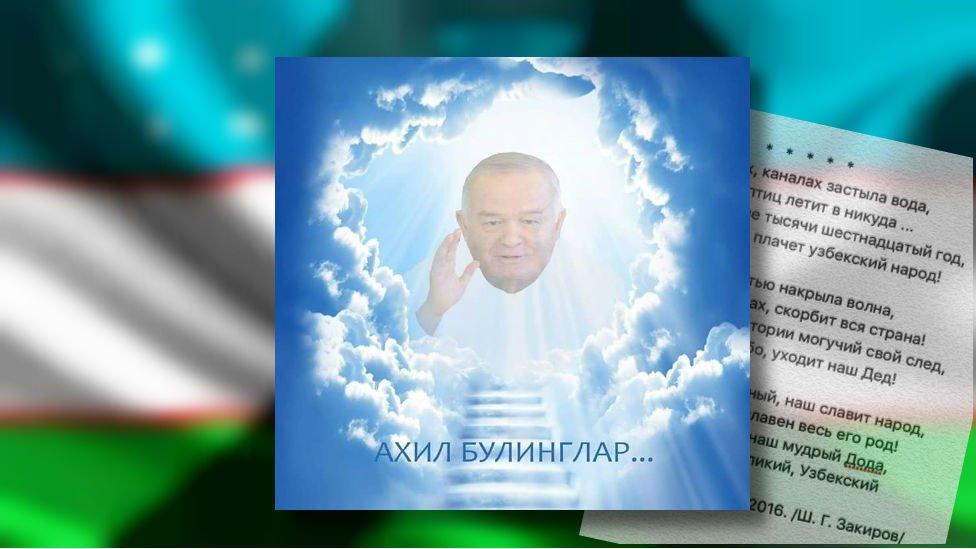
Memes and even poetic tributes to the president appeared on social media
Social media users in the country, where dissent can attract strict legal sanctions, have been circulating an image of the late president beaming down from heaven, saying: "Live in harmony".
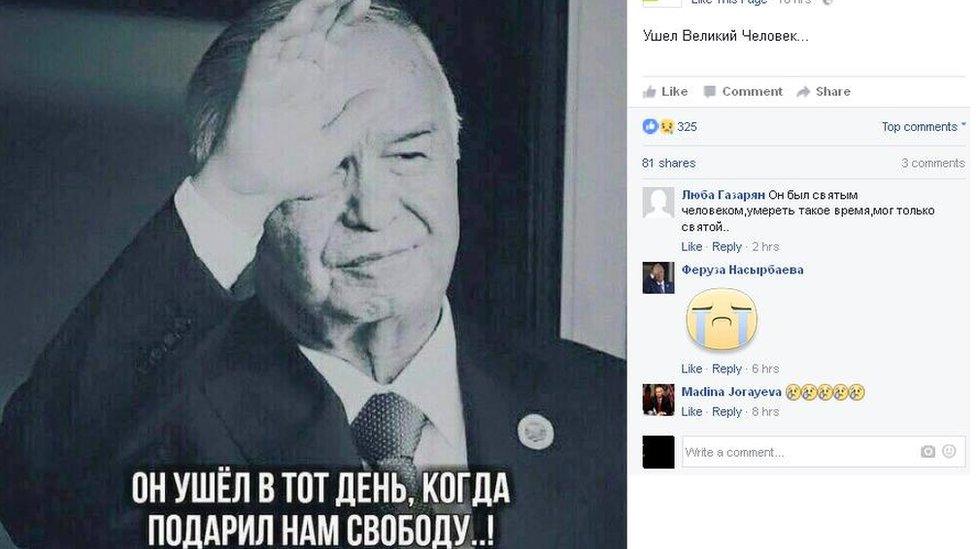
A Facebook user says that President Karimov gave Uzbekistan liberty
Others noted that Karimov's death coincided with the 25th anniversary of independence and shared a photo of him captioned: "He left us on the day he granted us liberty."
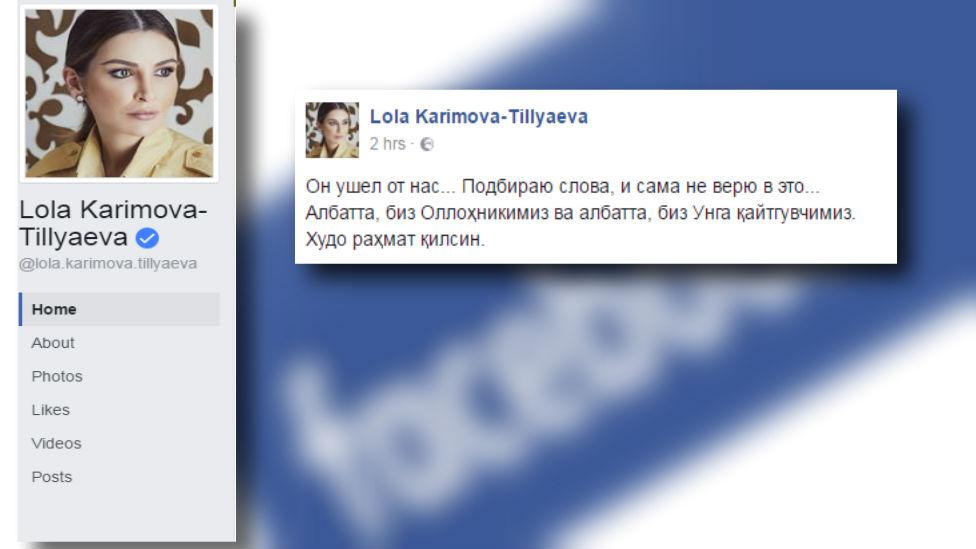
The late president's daughter Lola Karimova-Tillyaeva paid tribute to her father on Facebook
Many changed their profile pictures to a black ribbon and some posted mournful poems, condolences and prayers.
'Under control'
In the neighbouring Central Asian states of Kazakhstan, Tajikistan and Kyrgyzstan, official media led with their leaders' messages of condolence to the Uzbek people while some pundits voiced uncertainty about the regional situation after Karimov's departure.
Prominent Kazakh blogger Zeinulla Kakimzhanov wrote on Facebook that the situation in Uzbekistan appeared to be "under control" and expressed the hope that Karimov's passing would not endanger the regional security.
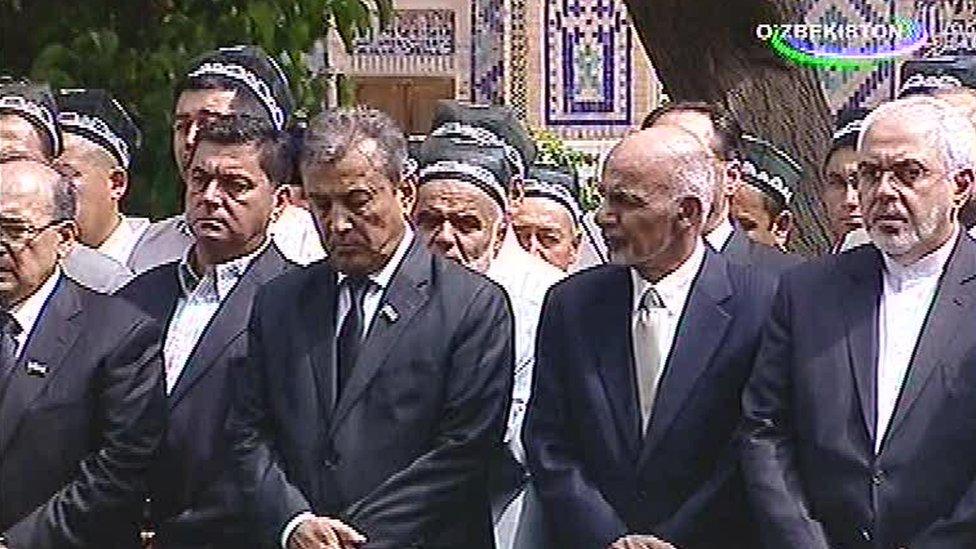
Afghan President Ashraf Ghani (2nd right) and Iranian Foreign Minister Mohammad Javad Zarif (R) attended Mr Karimov's funeral
Tajik commentator Abdugani Mamadazimov said he hoped for "a thaw in Tajik-Uzbek relations", particularly over a disputed hydropower plant, and another commentator, Safar Abdulloh, hoped that Uzbekistan's new leadership would "change their unfriendly behaviour towards their neighbours".
Kyrgyz online news websites led with the opening of World Nomad Games but also featured Mr Karimov's death prominently.
An adviser to the Kyrgyz Prime Minister, Toktokuchuk Mamytov, said that due to Uzbekistan's particular "mentality", the threat of religious extremism and terrorism could spread much faster than in other countries if the new authorities in Uzbekistan changed Karimov's "tough religious policy".
'Patriarch among post-Soviet presidents'
Russian media led with the story and the official TV channel was complimentary about Karimov's achievements.
"Karimov created a new global political reality. He managed to do something that no other post-Soviet leaders did: he turned a former Soviet republic into a fully fledged player on the global political field," Rossiya 1 TV, external said.
Noting that Karimov has been described both as "too pro-Russian" and "too pro-Western", the channel described him as being "his own man" who "saw strong and independent Uzbekistan as Russia's partner".
"With a firm grip, Karimov held power and the country together," said Gazprom-owned NTV, external channel, adding that in his foreign policy, Mr Karimov exploited "differences between Moscow and Washington".
"History will measure him by a tall yardstick," it said.
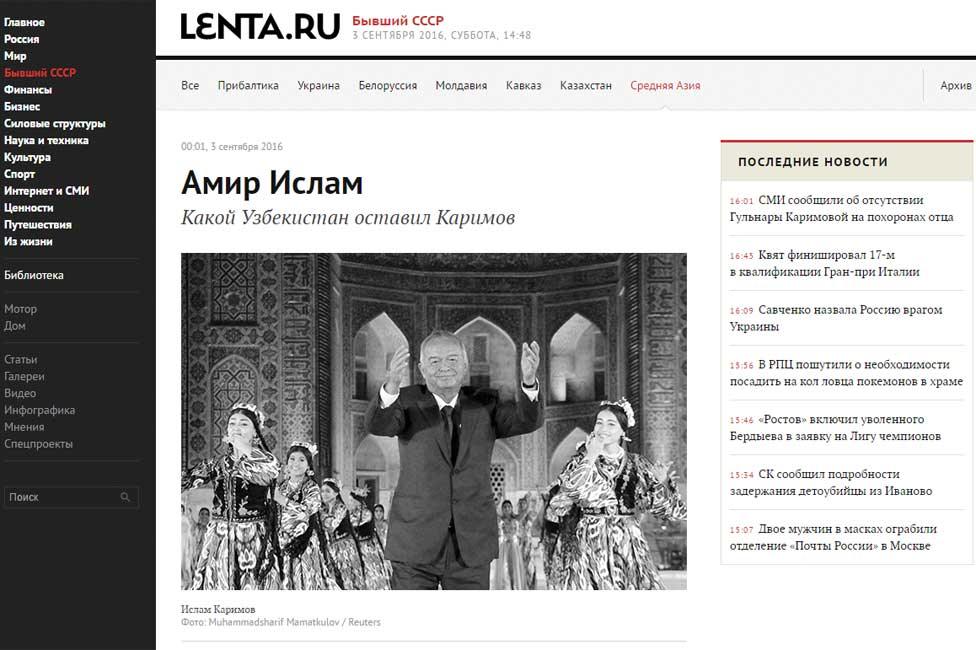
The Russian website Lenta.ru praised Mr Karimov's legacy
However, the popular news website Gazeta.ru, external warned that "the main danger is that after Karimov, no political figure will emerge who can combine his managerial talent, determination and ambitions. Without this, Uzbekistan's political system, which relies on a single individual, may very quickly destabilise."
And the popular news website Lenta.ru, external said Mr Karimov "leaves a country that has managed to defend its statehood in fire. It has a phoenix as its national emblem, a symbol of eternal revival".
'The economist or the tsar'
Opinion in Russian newspapers was more varied.
"Islam Karimov was a patriarch among post-Soviet presidents," the heavyweight business daily Kommersant, external says in its front-page article, noting that a quarter-of-a-century of Uzbek history will be "associated primarily with him".
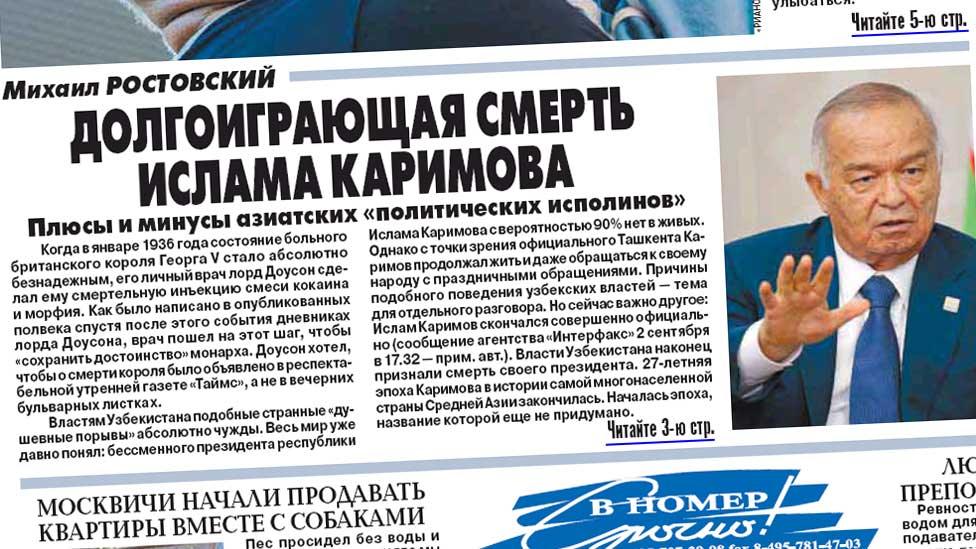
This front page headline from Moskovsky Komsomolets grimly states, 'The long playing death of Islam Karimov'
But in a piece in the popular daily Moskovsky Komsomolets, external, Mikhail Rostovsky says Mr Karimov held Uzbekistan "in an iron grip and did not allow any outsiders to interfere in his country's affairs".
"If Karimov's demise is suddenly followed by a political vacuum, it could mean a nightmarish scenario," it warns.
The popular pro-Kremlin tabloid Komsomolskaya Pravda, external said Mr Karimov "was neither a democrat nor a satrap (provincial governor in ancient Persia)". There were two sides to Mr Karimov, it suggested: "One, Karimov the economist. That president has managed to overcome the country's dependence on cotton and … modernise the economy… The other, Karimov the tsar. That president was a typical despot who has turned the country into a big police station."
BBC Monitoring, external reports and analyses news from TV, radio, web and print media around the world. You can follow BBC Monitoring on Twitter, external and Facebook, external.
- Published3 September 2016
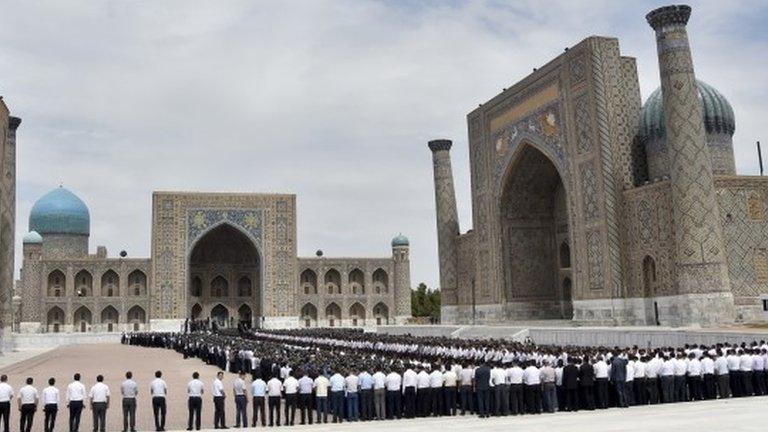
- Published3 September 2016
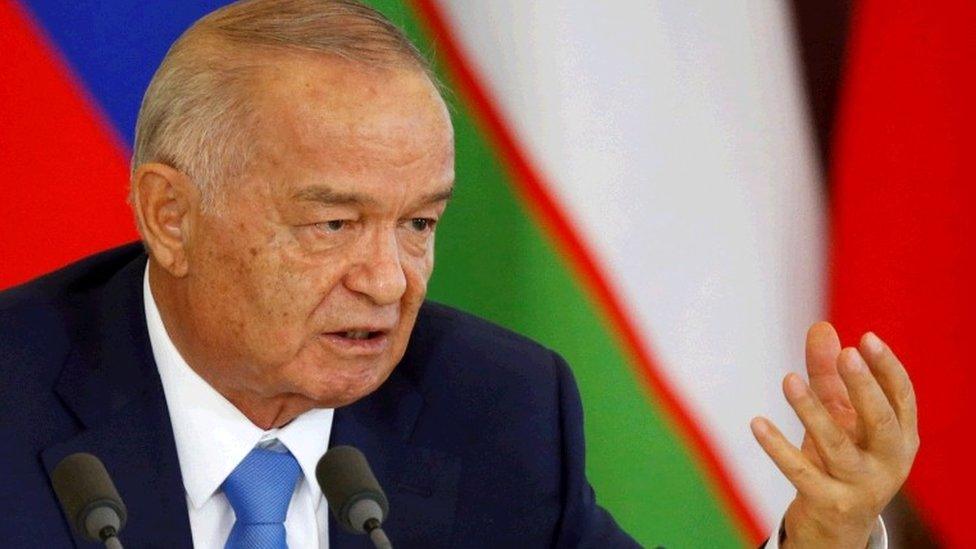
- Published2 September 2016
